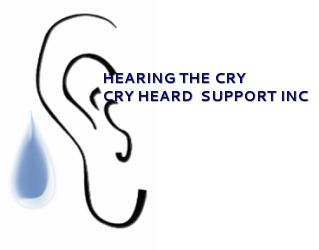The trauma from being sexually assaulted can be devastating, leaving you terrified, humiliated, alone, beleaguered by night terrors, flashbacks, and other unpleasant memories. Healing from sexual assault takes time and requires some understanding.
Healing is a Continuum
Healing is not forgetting
>During healing, you may gain the ability to cope with memories and better navigate your emotions.
The importance of Dialogue
>Make sure that you seek out trusted, supportive individuals to talk with (close friend).
When to Consider Talk Therapy
Strong Indicators for the need of Psychotherapy are:
1 Triggers: The majority of sexual assault survivors have experienced disturbing and painful memories of their assault(s). The survivor is transported back to the original trauma event, causing the survivor to experience overwhelming emotions.
Resources:
Rape, Abuse and Incest National Network (RAINN)
1 800 656-4673 (HOPE)
National Suicide Prevention Lifeline
1 800 273-8255
Donate to Cry Heard Support Inc:
Click Below
http://www.cryheardsupport.com/about.html
Healing is a Continuum
- Healing is an unhurried and an ongoing process.
Healing is not forgetting
- During the process of healing, you will continue to experience triggers1 and reactions. Know that the occurrence is normal
- Healing does not mean that you will be able to erase your sexual assault experience and the emotional pain associated with it.
>During healing, you may gain the ability to cope with memories and better navigate your emotions.
The importance of Dialogue
- Being able to talk about painful experiences (trauma) and memories connected to them can be extremely helpful.
- Timing is everything. Don't be forced or pressured to speak before ready.
- When ready to talk about your assault(s), you will not reap the full benefit in just one conversation.
>Make sure that you seek out trusted, supportive individuals to talk with (close friend).
When to Consider Talk Therapy
- When you continue to experience severe distress resulting from assault (s).
- The majority of survivors experience high levels of anguish during the first weeks and months following their sexual assault. By the third to the sixth month, the agony lessens for many.
Strong Indicators for the need of Psychotherapy are:
- Always avoiding reminders of the assault (s).
- Thoughts of self-harm (e.g., cutting yourself), Suicidal ideation.
- Drinking too much, using drugs, or non-prescribed (painkillers, etc.), overuse of prescribed medication.
1 Triggers: The majority of sexual assault survivors have experienced disturbing and painful memories of their assault(s). The survivor is transported back to the original trauma event, causing the survivor to experience overwhelming emotions.
Resources:
Rape, Abuse and Incest National Network (RAINN)
1 800 656-4673 (HOPE)
National Suicide Prevention Lifeline
1 800 273-8255
Donate to Cry Heard Support Inc:
Click Below
http://www.cryheardsupport.com/about.html

 RSS Feed
RSS Feed
